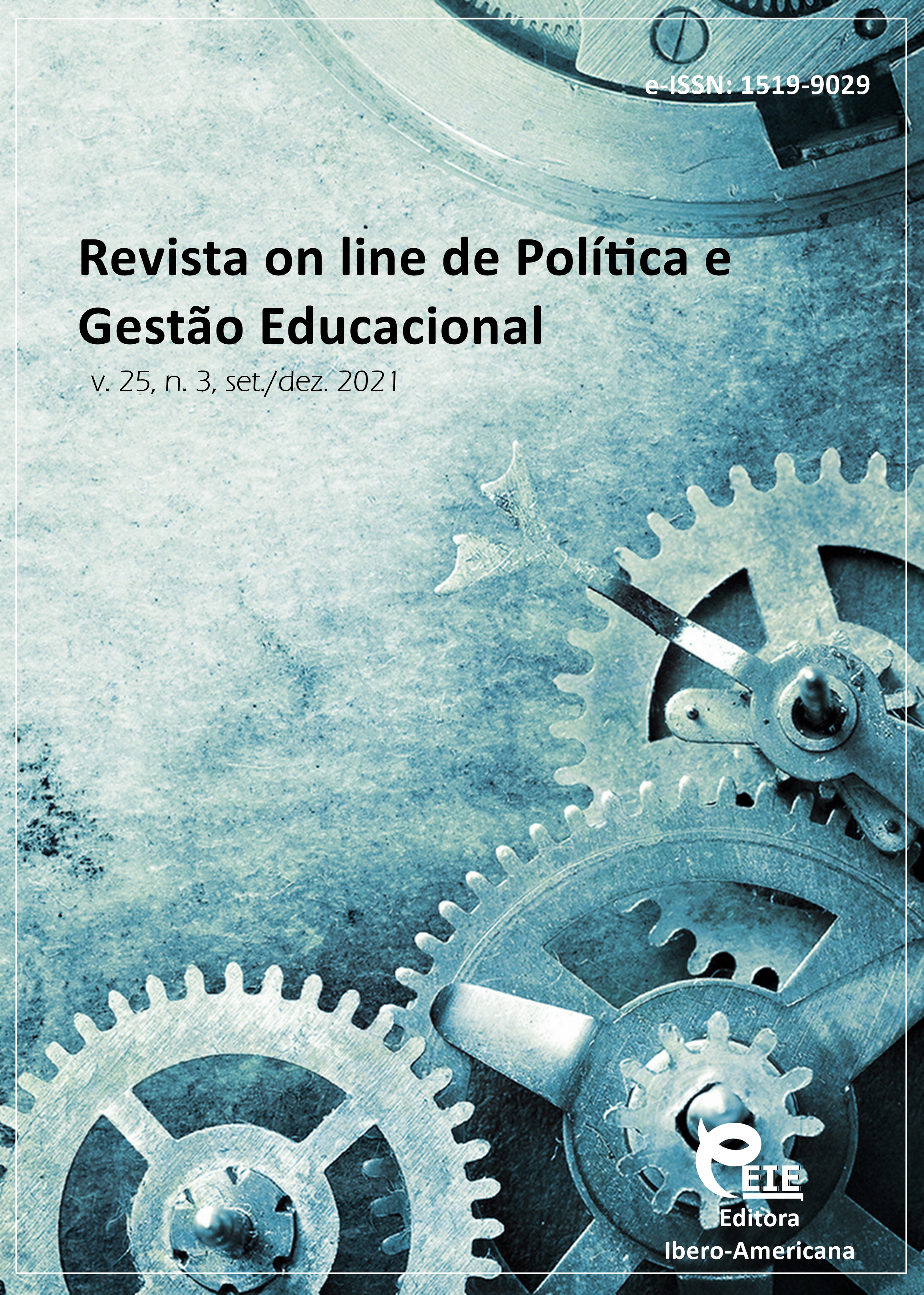Wise political education: characteristics, principles and efficiency
DOI:
https://doi.org/10.22633/rpge.v25i3.15471Keywords:
Political education, Wisdom, Political norms, Political roles, EthicsAbstract
Political education means preparing citizens to accept social roles and perform political duties in society. Wise political education is one of the educational models that is rooted in the philosophical tradition of ancient Greece and has been considered by thinkers in different historical periods. In this educational model, the institutionalization of political and social values and norms is followed in three individual, family and social areas of education. In this process, the physical and mental education of individuals begins from childhood and they are taught political and social skills and awareness on the path to development. Teaching moral virtues and avoiding moral vices is the basis of wise political education. The institution of the family has the task of institutionalizing values and norms such as love, affection, courage, friendship, cooperation and rule of law in children. And in the process, individuals are prepared to accept and play political and social roles.
Downloads
References
AKBARIAN, R. Relationships between religion and philosophy in the Islamic world. Tehran: Publishing Organization of the Institute of Islamic Culture and Thought, 1386.
AMERI, M. Al-Sa’adah wa al-As’ad fi al-Sīrah al-Insaniyah. Edited by Mojtaba Minuyi. Tehran: University of Tehran, 1408.
AUGUSTINE in The City of God. Edited by James Wetze. Cambridge University Press, 2012.
BAYĀNĪ, S. Religion and government in Mongol Iran. Tehran: University Publishing Center, 1370 HS.
DINANI, G. H. I. D. The story of philosophical thought in the Islamic world. Tehran: New design, 1371 HS.
FĀRĀBĪ, A. N. The views of the people of Utopia, Research, Nader Nasri. Beirut: Dar al-Mashreq, 1991.
FĀRĀBĪ, M. Punishment for the sake of happiness. Edited by Ja’far Al Yassin. Tehran: Hekmat, 1371.
HALABĪ, A. A. History of Philosophy in Iran and the Islamic World. Tehran: Asatir Publications, 1373.
HOBBES, T. Leviathan. Edited by C, B, MacPherson. Penguin Classics, 1985.
Hosseini, A. A.; QAEMI, F. Linkage the Education and Politics in Ancient Greek Political Thought. Political Research, n. 2, p. 8-25, 1390.
IBN SINA, A. A. Ar-Rasā’il (treatise on the science of ethics). Bombay: Golzar Hassani Printing House, 1318.
IBN SINA, A. A. As-Siyāsah. Cairo: Dar al-Arab, 1985.
JAEGER, W. Paideia: The Ideals of Greek Culture: Archaic Greece. Translated by Gilbert Highet. Oxford University Press, 1939.
JUWAYNĪ, A.-M. I. M. Tārīkh-i Jahāngushāy Juwaynī. Edited by Muhammad Qazwīnī. Tehran: Bamdad, 1329.
LOKE, J. Two Treatises of Government. Edited by Petter Laslett. Cambridge University Press, 1997.
MAYER, F. History of educational ideas. Translated by Ali Asghar Fayyaz. Tehran: Samt, 1374. v. 1.
MOTE’ALLEHIN, M. S. The transcendent wisdom in the four intellectual journeys. Beirut: Dar al-Īhyā al-Turāth al-Arabī, 1981.
PLATO The Republic. Edited by Christopher Rowe. Penguin Classics, 2012.
PLATO The Republic. Tehran: Scientific and Cultural Publications, 1390.
RAD, M. Y. Political Thought of Khajeh Nasir al-Din Tūsī. Qom: Book Garden, 1380.
REZAYEE, A. A. History of Iranians. Tehran: Publications of Durr, 1378.
TŪSĪ, N. A.-D. The Nasirean Ethics. Edited by Mojtaba Minuyi and Alireza Heydari. Tehran: Kharazmi, 1373.
TŪSĪ, N. A.-D. The Nasirean Ethics. London: george allen and unwin, 1964.
Published
How to Cite
Issue
Section
License
Copyright (c) 2021 Revista on line de Política e Gestão Educacional

This work is licensed under a Creative Commons Attribution-NonCommercial-ShareAlike 4.0 International License.
Manuscritos aceitos e publicados são de propriedade da Revista on line de Política e Gestão Educacional. É vedada a submissão integral ou parcial do manuscrito a qualquer outro periódico. A responsabilidade do conteúdo dos artigos é exclusiva dos autores. É vedada a tradução para outro idioma sem a autorização escrita do Editor ouvida a Comissão Editorial Científica.











